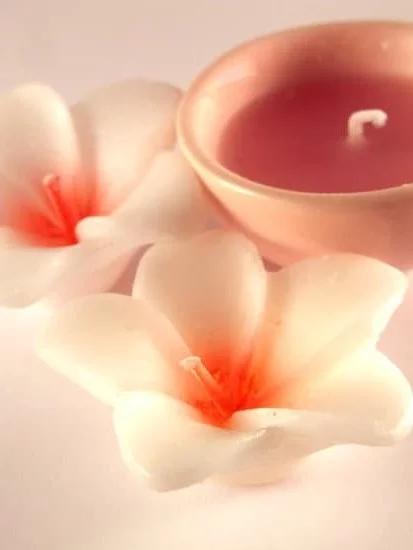Aromatherapy has the potential to transform your life in remarkable ways. The use of essential oils has been a part of traditional healing practices for centuries, and today, aromatherapy continues to gain popularity as a holistic approach to wellness.
Understanding the basics of aromatherapy is crucial for harnessing its life-changing benefits. Essential oils are extracted from plants and have been used for their therapeutic properties for both physical and emotional well-being. When used correctly, these plant-derived oils can have a profound impact on our health and overall quality of life.
In this article, we will explore the science behind aromatherapy, the power of scent in influencing emotions and mood, how aromatherapy can aid in stress relief and sleep improvement, its potential benefits for physical health, and practical tips for incorporating it into your daily routine at home and work. By embracing the holistic power of aromatherapy, you can experience positive transformations that extend beyond just your sense of smell.
The Science Behind Aromatherapy
Aromatherapy is a holistic healing treatment that uses natural plant extracts, known as essential oils, to promote physical and mental well-being. These essential oils are extracted from various parts of plants and have been used for centuries for their therapeutic properties. Each essential oil has its own unique scent and benefits, making them versatile tools for improving health and quality of life.
The science behind aromatherapy lies in the chemical composition of essential oils. These oils contain active compounds that can have a direct impact on the body and mind when inhaled or applied to the skin. For example, lavender essential oil contains linalool and linalyl acetate, which have been shown to have calming and relaxing effects on the nervous system. On the other hand, peppermint essential oil contains menthol, which has invigorating and energizing properties.
Exploring the benefits of essential oils reveals their wide range of therapeutic uses. From relieving headaches and muscle pain to boosting immunity and improving digestion, essential oils offer natural solutions for common health concerns. Furthermore, their anti-inflammatory, antiseptic, and antibacterial properties make them valuable additions to skincare routines. Understanding how aromatherapy works on a molecular level can provide insight into the powerful impact it can have on our overall well-being.
- Essential oils like lavender, tea tree, eucalyptus, and peppermint have antiseptic properties
- Peppermint oil can be used as a natural energy booster
- Eucalyptus oil is commonly used to relieve respiratory issues such as congestion or coughs
The Power of Scent
Aromatherapy has long been recognized for its ability to influence emotions and mood through the power of scent. The use of essential oils in aromatherapy can have a profound impact on an individual’s emotional well-being, providing a natural and holistic approach to addressing mental health concerns. Whether it’s reducing stress, promoting relaxation, or boosting energy levels, the right combination of essential oils can provide a shift in mood and emotional state.
The Science Behind Aromatherapy
The sense of smell is closely linked to the limbic system of the brain, which is responsible for emotions, memories, and behavior. When essential oils are inhaled, the aromatic molecules travel through the nasal passage and stimulate the olfactory nerves, sending signals to the brain.
This interaction with the limbic system can evoke powerful emotional responses and influence mood. For example, the scent of lavender has been found to have a calming effect, while citrus scents like lemon or orange can uplift and energize.
Using Aromatherapy for Emotional Well-Being
Incorporating aromatherapy into daily routines can be a simple yet effective way to manage emotional well-being. Whether it’s using a diffuser to fill the air with calming scents at home or carrying a roll-on blend of essential oils for on-the-go stress relief, aromatherapy offers a convenient tool for managing emotions. By creating personalized blends tailored to specific emotional needs, individuals can harness the power of scent to positively impact their mood and overall mental state.
Enhancing Mental Health With Aromatherapy
Research has shown that certain essential oils have properties that may contribute to improved mental health outcomes. For example, studies have suggested that inhaling rosemary oil may enhance cognitive performance and reduce anxiety levels.
Additionally, bergamot oil has been investigated for its potential as an antidepressant by influencing neurotransmitters like dopamine and serotonin. By delving into research-backed applications of aromatherapy for emotional well-being, individuals can begin to discover how aromatherapy can change their lives by improving their psychological health.
Aromatherapy for Stress Relief
Aromatherapy has long been recognized for its ability to provide stress relief and improve mental well-being. The use of essential oils in aromatherapy can have a profound impact on the mind and body, helping to reduce feelings of anxiety and promote a sense of calm and relaxation. In this section, we will explore the specific ways in which aromatherapy can be utilized to alleviate stress and enhance mental well-being.
Understanding the Impact of Aromatherapy on Stress
Research has shown that certain essential oils used in aromatherapy have the ability to reduce cortisol levels, which is the hormone responsible for stress. When inhaled, these essential oils can stimulate the olfactory system, sending signals to the brain that can help regulate emotions and promote a sense of calmness. By incorporating aromatherapy into your daily routine, you can effectively manage stress and improve your overall mental well-being.
Incorporating Aromatherapy Into Your Stress-Relief Routine
There are numerous ways to incorporate aromatherapy into your stress-relief routine. Whether it’s through diffusing essential oils, using them in a relaxing bath, or applying them directly to the skin through massage or inhalation, there are various methods for utilizing aromatherapy as a tool for managing stress. By experimenting with different essential oils and finding what works best for you, you can harness the power of aromatherapy to significantly improve your mental state and overall well-being.
Creating a Calming Environment With Aromatherapy
In addition to directly inhaling or applying essential oils, you can also use them to create a calming environment at home or work. Diffusing essential oils such as lavender, chamomile, or bergamot can fill a space with soothing scents that promote relaxation and tranquility.
By creating a peaceful atmosphere with aromatherapy, you can in turn reduce stress levels, promoting better mental health outcomes overall. Through understanding how aromatherapy can change your life by reducing stress and improving mental well-being, you can effectively integrate this practice into your daily routine for lasting benefits.
Aromatherapy for Sleep
Sleep is an essential part of maintaining overall well-being, yet many people struggle to get the rest they need. Aromatherapy can be a powerful tool in promoting relaxation and improving sleep quality. By harnessing the natural benefits of essential oils, individuals can create a soothing environment that encourages restful sleep.
One way aromatherapy can enhance relaxation and improve sleep quality is by using specific essential oils known for their calming properties. Some popular choices include lavender, chamomile, and cedarwood. These essential oils have been shown to have a calming effect on the nervous system, helping to reduce anxiety and promote a sense of tranquility before bedtime.
Incorporating aromatherapy into your bedtime routine doesn’t have to be complicated. There are several simple ways to use essential oils to enhance relaxation and improve sleep quality. You can diffuse the oils in your bedroom using an ultrasonic diffuser or add a few drops to a warm bath before bedtime.
Additionally, applying diluted essential oils topically or using a pillow spray can also help create a relaxing atmosphere conducive to better sleep. With these simple methods, it’s easy to incorporate aromatherapy into your nightly routine and experience its positive impact on sleep quality.
Embracing the life-changing benefits of aromatherapy for sleep can lead to improved well-being and overall health. By utilizing the power of scent through essential oils, individuals can create a peaceful environment that promotes relaxation and enhances their ability to achieve restful sleep. Through simple practices such as diffusing calming essential oils or incorporating them into a bedtime routine, the transformative effects of aromatherapy on sleep can truly change lives for the better.
Aromatherapy for Physical Health
Aromatherapy has been gaining popularity as a natural and holistic approach to improving physical health. Essential oils, which are the cornerstone of aromatherapy, have been used for centuries to treat various ailments and promote overall well-being. These potent plant extracts contain numerous therapeutic properties that can address a wide range of physical health concerns, from relieving headaches to improving digestion.
One of the key ways in which aromatherapy can change your life is by harnessing the healing properties of essential oils to support your body’s natural ability to heal itself. Many essential oils possess anti-inflammatory, antibacterial, and antiviral properties, making them valuable tools for supporting the immune system and fighting off infections.
For example, tea tree oil is known for its antimicrobial properties and can be used topically to treat skin conditions such as acne and athlete’s foot.
In addition to their antimicrobial properties, essential oils can also help alleviate pain and inflammation. Oils like peppermint and eucalyptus have cooling effects that can soothe sore muscles and joints when applied topically or used in massage therapy.
Moreover, aromatherapy has shown promise in reducing symptoms associated with chronic conditions such as fibromyalgia and arthritis. It’s important to note that while essential oils can offer relief for many physical health issues, they should not replace medical treatment but rather complement it.
| Physical Health Benefits of Aromatherapy | Examples of Essential Oils |
|---|---|
| Supports immune system function | Tea tree oil, oregano oil |
| Relieves pain and inflammation | Peppermint oil, eucalyptus oil |
| Alleviates symptoms of chronic conditions | Lavender oil, chamomile oil |
Incorporating Aromatherapy Into Daily Life
Aromatherapy is a holistic healing treatment that uses natural plant extracts, known as essential oils, to promote health and well-being. Incorporating aromatherapy into your daily life can have transformative effects on your mental, emotional, and physical health. By understanding how aromatherapy can change your life, you can learn to harness the power of scent for overall wellness.
One simple way to incorporate aromatherapy into your daily routine is by using an essential oil diffuser at home or in the office. Diffusing essential oils can help create a calming or uplifting atmosphere, depending on the type of oil used. For example, lavender and chamomile are great choices for promoting relaxation, while citrus oils like lemon and orange can help boost energy and improve mood.
In addition to diffusing essential oils, you can also use them topically by diluting them with a carrier oil and applying them to the skin. This method allows for targeted relief from ailments such as headaches, muscle pain, and digestive issues. You can also add a few drops of essential oil to a warm bath for a soothing and rejuvenating experience.
Overall, incorporating aromatherapy into your daily life through the use of essential oils offers a natural and effective way to support your health and well-being. Discovering how aromatherapy can change your life may lead you down a path of improved mental clarity, emotional balance, and physical vitality.
Conclusion
In conclusion, it is clear that aromatherapy has the potential to bring about significant positive changes in our lives. From its ability to influence emotions and mood, to its effectiveness in promoting stress relief and improving sleep quality, essential oils have proven to be powerful tools for enhancing overall well-being. The science behind aromatherapy supports the idea that these natural plant extracts can have a real impact on physical and mental health.
By incorporating aromatherapy into our daily lives, whether through diffusing essential oils at home or using them in massage or bath rituals, we can experience the transformative effects firsthand. It is important to remember that while aromatherapy can provide support for various health concerns, it should not be used as a substitute for professional medical treatment when necessary. Instead, it can complement traditional healthcare practices and contribute to a holistic approach to wellness.
In essence, embracing the life-changing benefits of aromatherapy means recognizing the power of scent and taking advantage of the healing properties of essential oils. Its potential to improve our mental, emotional, and physical well-being makes it a valuable addition to anyone’s self-care routine. Ultimately, understanding how aromatherapy can change your life allows you to harness its full potential and reap its many rewards.
Frequently Asked Questions
How Does Aromatherapy Benefit People?
Aromatherapy benefits people by promoting relaxation, reducing stress, and improving overall well-being. Certain essential oils have been found to have antimicrobial and anti-inflammatory properties, which can support the immune system and physical health.
How Does Aromatherapy Help Emotionally?
Aromatherapy helps people emotionally by triggering positive memories or emotions through the sense of smell. Certain scents can also promote feelings of calmness, happiness, or relaxation, making it a popular tool for managing emotional stress and anxiety.
How Does Aromatherapy Affect the Mind?
Aromatherapy affects the mind by influencing brain activity through the olfactory system. Inhalation of essential oils can impact mood, cognition, and behavior by stimulating certain areas of the brain related to emotion and memory. This can lead to improved focus, concentration, and mental clarity.

Are you looking for a natural way to improve your health and wellbeing?
If so, aromatherapy may be the answer for you.




